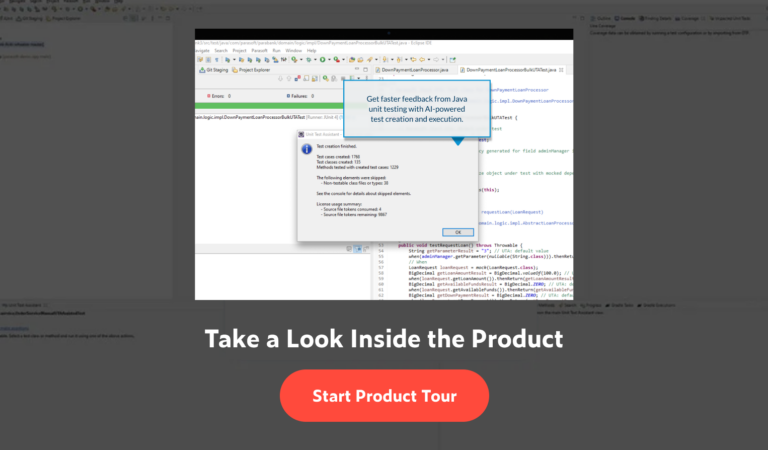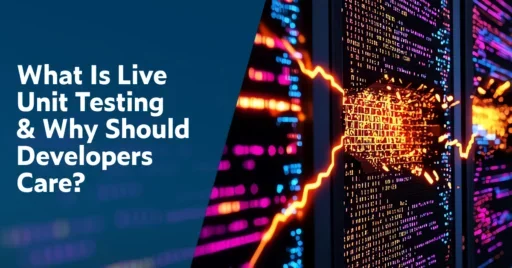Use Agentic AI to generate smarter API tests. In minutes. Learn how >>
Java Test Impact Analysis
Make Code Changes With Confidence
Accelerate unit test suite execution by up to 90% with a targeted approach that focuses on validating code changes.
Java Test Impact Analysis

Test Impact Analysis
Parasoft Jtest’s test impact analysis accelerates unit testing by running only the tests impacted by code changes. This focused approach enables teams to accelerate their testing cycles in CI/CD pipelines, providing teams with faster testing feedback.
How Does It Work?
The faster you test, the faster you release. Parasoft Jtest accelerates application testing by optimizing unit test execution within both the IDE and CI process, focusing only on code changes. Using AI-enhanced test impact analysis (TIA), Jtest detects changes in the source code and identifies the specific subset of tests required to validate those updates. With TIA, developers can automatically run only the impacted tests, streamlining the validation process, reducing test time, and preventing downstream issues such as build or regression failures.
IDE-Based Live Unit Testing
Parasoft Jtest’s Live Unit Testing leverages test impact analysis to automatically identify unit tests impacted by code changes and run those tests in the background. As developers change code in their IntelliJ or Eclipse IDE, Jtest automatically executes only the subset of test cases that correlate to those recent code changes, providing continuous feedback during active development.
Within CI/CD Pipelines
Parasoft Jtest’s test impact analysis unit test execution during the CI/CD process to provide immediate feedback on application changes. Jtest identifies the code changes since the baseline build, for example, the last nightly build. It determines which tests need to be run to exercise that code and then executes only that subset of tests. This workflow enables teams to set up CI/CD jobs that only run tests based on the most recent code changes, shrinking the amount of time it takes to run a CI job from hours to minutes.
Features
Benefit From the Parasoft Approach
Experience +90% Faster Testing Feedback
Traditional testing often requires running the full test suite for each code change, making testing cycles lengthy and time consuming. Test impact analysis (TIA) transforms this process by targeting testing solely on code affected by recent changes, significantly reducing execution time. By focusing on impacted areas of the code, TIA enables teams to get faster feedback on code quality, allowing for quicker fixes and faster delivery.
Reduce Testing Costs in CI/CD Pipelines
Test impact analysis minimizes testing costs by optimizing resource allocation, streamlining processes, and reducing the need for extensive test cycles. This targeted approach cuts cloud and infrastructure expenses in CI/CD pipelines by reducing the resources needed for test execution.
Accelerate Testing Cycles for Functional Test Automation
Parasoft’s test impact analysis goes beyond unit testing, supporting any test type and test automation framework across the SDLC—including integration and functional tests. With support for distributed microservice ecosystems, test impact analysis helps teams know what test cases to run even when downstream services change.
Parasoft Jtest Resources


Raise the bar on Java code quality and boost team productivity with Parasoft Jtest.





